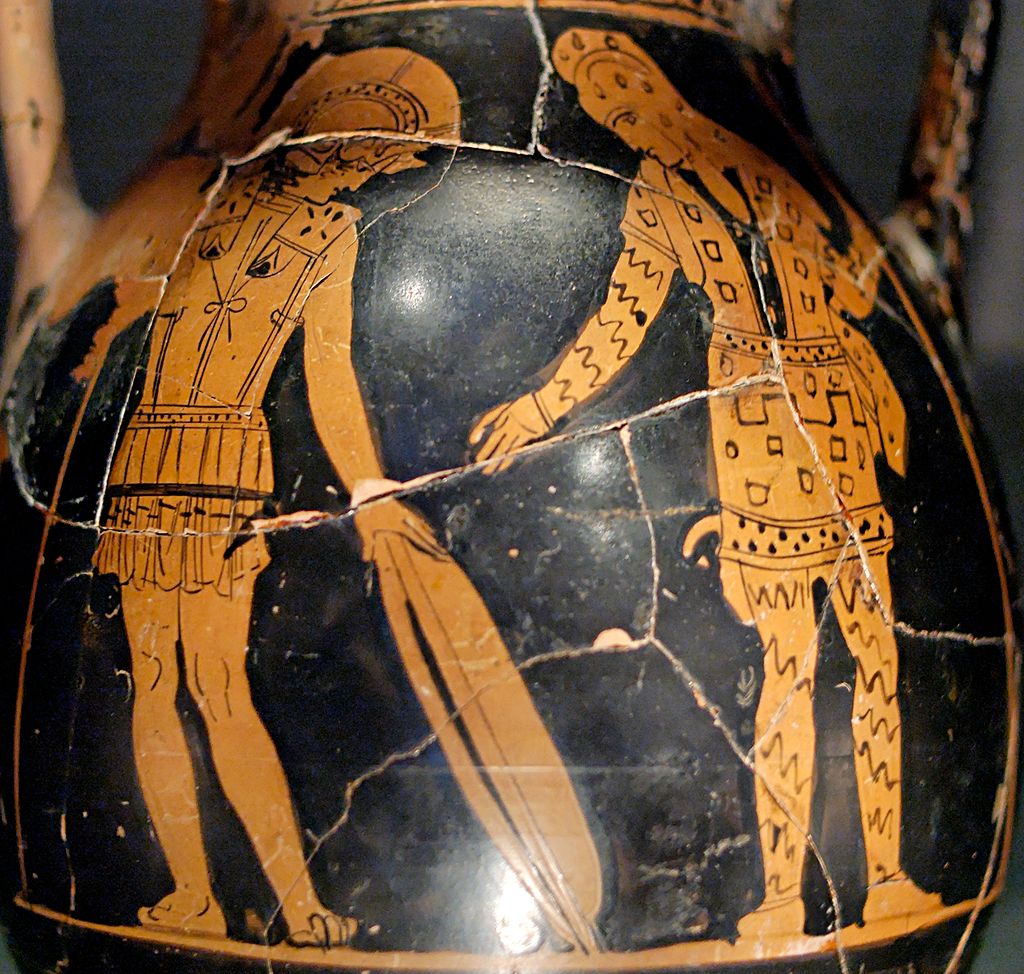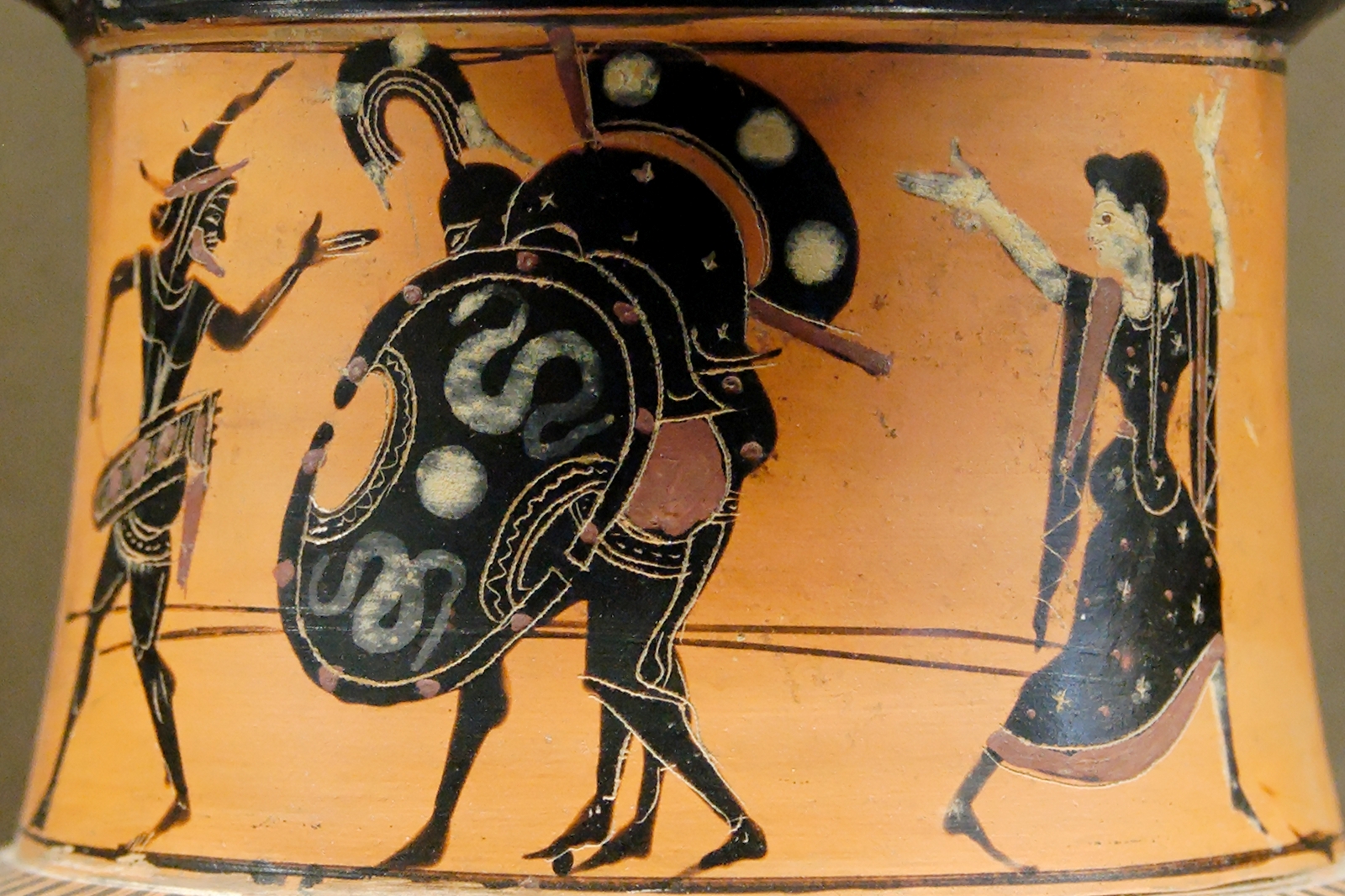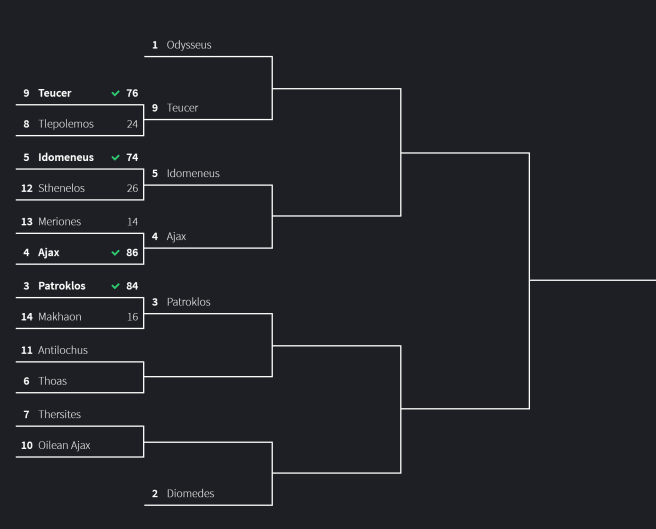Homer, Iliad 20.288-308
Then Aeneas would have struck [Achilles] as he rushed at him
With a stone in the helmet or shield, which would have projected him from ruin,
But Peleus’s son would have robbed him of his life with his sword near at hand—
If Poseidon the earth-shaker had not sharply noticed it all.
Immediately, he spoke this speak among the immortal gods:
“Shit! Truly, I have grief for great-hearted Aeneas
Who soon will go to Hades overcome by Peleus’ son,
All because he listened to the words of far-shooting Apollo,
The fool, that god will not be of any use against harsh ruin.
But why should this guy who isn’t at fault suffer grief now
Without any reason because of other people’s pain when he always
Gave cherished gifts to the gods who hold the wide sky.
But come on, let’s lead him away from death
So that Kronos’ son won’t get enraged somehow if Achilles
Kills him. It is his fate to escape
So that the race of Dardanos won’t go seedless and erased,
Dardanos whom the son of Kronos loved beyond all his children
Who were born to him from mortal women.
Kronos’ son has already turned against Priam’s offspring.
Now, mighty Aeneas will be lord over the Trojans
Along with the children of his children who will be born later on.”
ἔνθά κεν Αἰνείας μὲν ἐπεσσύμενον βάλε πέτρῳ
ἢ κόρυθ’ ἠὲ σάκος, τό οἱ ἤρκεσε λυγρὸν ὄλεθρον,
τὸν δέ κε Πηλεΐδης σχεδὸν ἄορι θυμὸν ἀπηύρα,
εἰ μὴ ἄρ’ ὀξὺ νόησε Ποσειδάων ἐνοσίχθων·
αὐτίκα δ’ ἀθανάτοισι θεοῖς μετὰ μῦθον ἔειπεν·
ὢ πόποι ἦ μοι ἄχος μεγαλήτορος Αἰνείαο,
ὃς τάχα Πηλεΐωνι δαμεὶς ῎Αϊδος δὲ κάτεισι
πειθόμενος μύθοισιν ᾿Απόλλωνος ἑκάτοιο
νήπιος, οὐδέ τί οἱ χραισμήσει λυγρὸν ὄλεθρον.
ἀλλὰ τί ἢ νῦν οὗτος ἀναίτιος ἄλγεα πάσχει
μὰψ ἕνεκ’ ἀλλοτρίων ἀχέων, κεχαρισμένα δ’ αἰεὶ
δῶρα θεοῖσι δίδωσι τοὶ οὐρανὸν εὐρὺν ἔχουσιν;
ἀλλ’ ἄγεθ’ ἡμεῖς πέρ μιν ὑπὲκ θανάτου ἀγάγωμεν,
μή πως καὶ Κρονίδης κεχολώσεται, αἴ κεν ᾿Αχιλλεὺς
τόνδε κατακτείνῃ· μόριμον δέ οἵ ἐστ’ ἀλέασθαι,
ὄφρα μὴ ἄσπερμος γενεὴ καὶ ἄφαντος ὄληται
Δαρδάνου, ὃν Κρονίδης περὶ πάντων φίλατο παίδων
οἳ ἕθεν ἐξεγένοντο γυναικῶν τε θνητάων.
ἤδη γὰρ Πριάμου γενεὴν ἔχθηρε Κρονίων·
νῦν δὲ δὴ Αἰνείαο βίη Τρώεσσιν ἀνάξει
καὶ παίδων παῖδες, τοί κεν μετόπισθε γένωνται.
Schol. T Ad Hom. Il. 20.307-8
“Some people say that [the children of Aeneas live on] through the Romans, which the poet knew from the oracles of the Sibyl, while others claim that the Aiolians expelled the descendants of Aeneas. But those who claim that Aphrodite devised the Trojan War because she knew this are wrong”
οἱ μὲν διὰ ῾Ρωμαίους φασίν, ἅπερ εἰδέναι τὸν ποιητὴν ἐκ τῶν Σιβύλλης
χρησμῶν, οἱ δέ, ὅτι Αἰολεῖς ἐξέβαλον τοὺς ἀπογόνους Αἰνείου. πταί-
ουσι δέ, ὅσοι φασὶ τοῦτο εἰδυῖαν ᾿Αφροδίτην μηχανήσασθαι τὸν
Τρωϊκὸν πόλεμον.




























